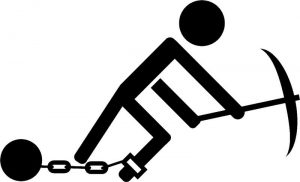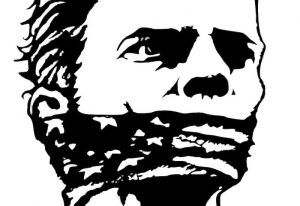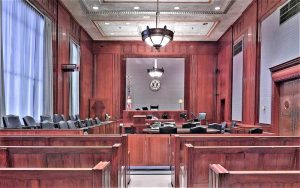Legislative branch
Of the three government bodies, the most important place belongs to the legislative branch. The function of government begins with the drafting of laws and is followed by enforcement and adjudication functions and its application. As such, this power is considered to be the first organ of government.
What is the legislative branch?
It is the part of the government that is in charge of creating, developing and modifying the laws of a country. It also regulates the rights and responsibilities that citizens have, which have been established by means of the Constitution.
About the legislative branch
Legislative branch is the part of government that is responsible for establishing the laws that govern a territory. Legislative branch is the organ that approves the government’s laws, the one that has the responsibility to formulate the will of the state and to grant it authority and legal force. In simple words, it is that government body that makes laws and enjoys a very special and important work in all democratic states. It is the assembly of representatives elected by the people and represents national public opinion and the power of the people.
Characteristics
The main features of legislative branch are as follows:
- It is an assembly where the structuring and formulation of laws of a country is deliberated.
- It administers the State budget.
- Its laws are known as legislation.
- It directs the government’s actions.
- Its members are known as legislators or deputies depending on the country.
- These legislators are elected by popular vote.
- Laws can be debated through legislative chambers.
- When a chamber is unique it is called unicameral, when there are two chambers it is bicameral, three tricameral chambers and four chambers it is tetracameral.
- The number of members can vary from country to country.
Functions
The main functions of the legislative branch are as follows:
- Elaboration of laws with political prudence, in order that it is fair, adequate, timely, general for all and that it possesses perdurability.
- It has a representation function which is its main function since through the vote, we elect a representative who will be in charge of presenting our interests before Congress.
- Inspect, analyze, test, examine, record, review, intervene and verify the functioning of the public administration, that is, the Executive Power.
- Deliberative function, which guarantees the democratic rights of minorities.
- A control function that balances the democratic state by controlling it and demanding accountability.
- Budgetary function to control the revenues and expenditures of the public treasury.
- It has the function of communication between the represented and the representatives.
- It must provide information on the legislative task, which allows legislators to produce norms according to reality, need and possibilities of implementation.
- It has an administrative function where internal procedures are developed for the organization, diligence and performance of the chambers.
Who represents the legislative branch
The legislative branch is represented by deputies or senators, who in turn, represent the people who chose them by free and secret ballot.
Attributions
Some of the powers that legislative branch has are:
- To legislate in matters of national competence and the functioning of the branches of National Power.
- Propose amendments and reforms to the Constitution.
- To control the Government and the National Public Administration, in the terms enshrined in the Constitution and the law.
- Organize and promote citizen participation in matters within its competence.
- Declare amnesties.
- Authorize additional appropriations to the budget.
- Approve plans for the economic and social development of the country.
- To watch over the autonomy and interests of the State.
Backgrounds
One of the main antecedents of the legislative branch is the Magna Carta of 1215 that was signed by King John I, and it is the closest thing that exists to the current Political Constitution, in it, is the antecedent of the current democratic system and the limitation of powers due to their separation.
The second antecedent of importance is the publication of “The Spirit of the laws“, which was published in France in 1747, and where it was developed by Montesquieu, the separation of powers of the state to control each other and stop the abuses that occurred at the time.
History
With the disappearance of the Roman Empire there was a political dispersion of power and the Church was responsible for legitimizing power in the Middle Ages with the consecration of the kings. In the Middle Ages there existed the ecclesiastical councils that were the origin of the medieval representative assemblies, and that gave origin to the representative state bodies and parliamentarians in Europe.
Throughout history, there were changes that created Greek democracies such as the Athenaeum and at the time of the Roman Republic originated the Senate. The Chambers of Lords and Communes in England in the 14th century are considered to be the first legislative branches in history. The division of powers, i.e. the legislature itself as the power of the State, arose during the American Revolution and the French Revolution, based on Montesquieu’s democratic ideas.
Importance
The importance lies in the fact that it is the power responsible for the creation of laws, that is to say, their discussion and approval. The importance also lies in the fact that it is a power composed of the representatives of the people who have been elected by popular vote. In addition to belonging to different political parties in the treatment of bills are created debates and exchanges of ideas according to different ideologies ensuring the welfare of the population.
Legislative branch by country
- Chile: its structure is bicameral, composed of the Senate and the Deputies Chamber and its main objectives are to represent the citizenry, form laws together with the president and oversee the actions of the president and the government.
- Argentina: it is concentrated in the Congress of the Argentine Nation and is formed by a bicameral assembly of 329 members and a chamber of deputies with 257 of them, plus the Senate.
- Mexico: The Congress of the Union formed by the Senate and the Deputies Chamber. They approve laws and taxes, the national budget and approve or reject treaties and conventions with other countries.
How to cite this article?
Briceño V., Gabriela. (2019). Legislative branch. Recovered on 3 January, 2025, de Euston96: https://www.euston96.com/en/legislative-branch/










